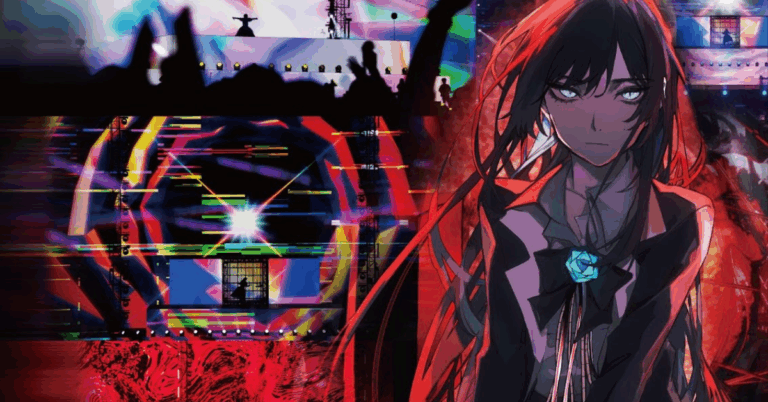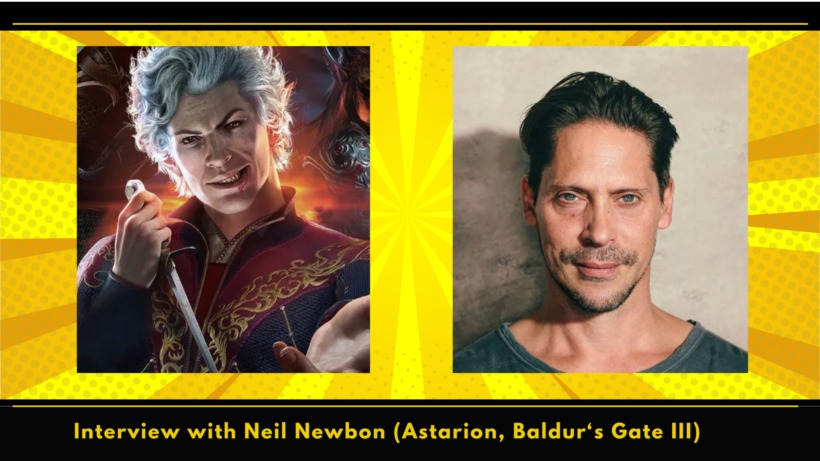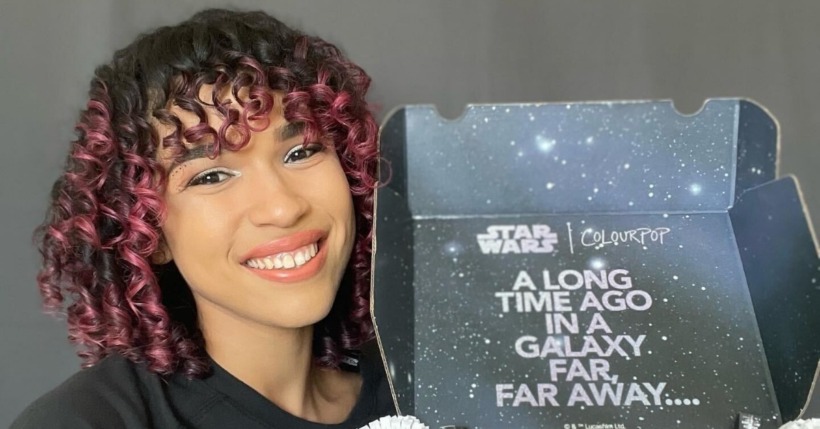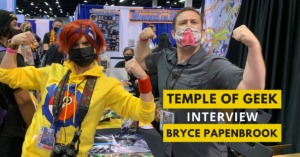A little over a year has passed since the end of WandaVision. The mini-series was the first of the five original Marvel series airing on Disney+ and the beginning of Phase Four of the MCU. While Phase Four has proven to be the grittiest and most down-to-Earth phase of the MCU so far, I still find myself thinking back to the WandaVision days.
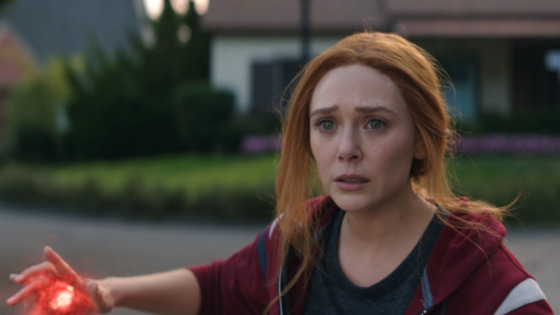
The story of a woman stricken by non-stop trauma and grief who used her power to fabricate her dream life resonated with me. Outside of the magic spells, hexes, and funky period fashion, WandaVision remains one of the rawest takes on what it’s like to try to find happiness in a world that isn’t so kind. The series is also a lesson in learning to let go.
Finding solace in fiction
Like Wanda, I found solace in fiction when the adversity and heartache of reality became too difficult to bear. While I wasn’t living in a war-torn country like Sokovia, I dealt with chronically ill parents, unkind peers, family members who came and went, and often being left alone to deal with these situations and feelings. As a coping mechanism, I immersed myself in worlds that were not my own. I flew through book series, put on marathons of my favorite shows, and created my own stories. I drew, wrote, played video games, and got into acting. While those things may have looked like simple hobbies and interests to an outsider, those creative endeavors were the only things keeping me together. They were, and still are, outlets for me to make sense of the life I was born into.
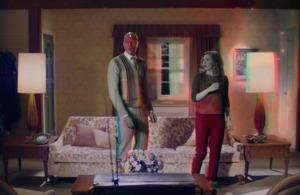
Movies, television, and theater connected me to others in ways that simple small talk never could. I remember watching X-Men, Star Wars, and Blade with my Papi (father). My Mama would show me reruns of I Love Lucy, I Dream of Jeannie, and Bewitched. There was comfort and security in knowing that despite what was going on around us, we could all come together over movies and TV. We enjoyed these moments that were much-needed breaks from the sadness, grief, and pain that persisted in our lives.
Wanda is a character with an immense amount of power. We learn that while her powers were amplified by the Mind Stone, she was born a witch. She is a powerful manifester who can shift reality with a thought. Her power is so great that, for the majority of WandaVision, she didn’t even know how The Hex started. All she could remember was feeling alone and hopeless. It is eventually revealed that Wanda’s Westview was created during a moment of emotional release as she visits the foundation of the house that she and Vision had bought to grow old in. She falls to her knees and lets out a heart-wrenching, guttural cry. Her grief activates her Chaos Magic to not only create a pocket reality but a new version of Vision.
Many trauma survivors retreat into fiction and made-up worlds as a coping mechanism, the brain’s attempt to shield the survivor from the pain. However, when you have supernatural powers amplified by an Infinity Stone, your coping mechanism might manifest into something more…material.

Wanda lost everything
Before the events of WandaVision, Wanda had lost everything. Her parents were long dead, her brother was gone, and the love of her life was brutally taken from her not once, but twice before her eyes. Speaking of the love of her life, it honestly makes sense that Wanda would fall for a synthezoid. Vision was a non-organic being made of Vibranium, one of the toughest and most advanced materials in the world. The Mind Stone sustained him. He should have been everlasting, a being that could never die. Yet she lost him, too.
Tragedy, Sadness, and Impermanence
I suppose that’s why many of us escape into the world of fiction. It contains tragedy and sadness, but there isn’t the same sense of permanence compared to real life. In sitcoms, the “problems” are often “shenanigans” as Young Wanda called them. Shenanigans often aren’t scary, but silly and easy to move past. The sense of impermanence also applies to more “serious” works.
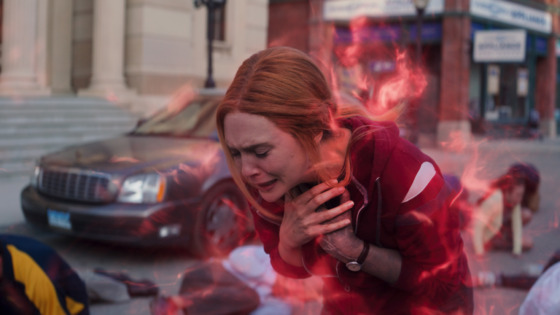
Your favorite character may get hurt or die, but you can always go back to a point where they were alive and smiling. A movie may be hitting its lowest point, but there is hope that the ending will rectify the situation. If a plot point becomes too upsetting, you can pause it and come back to it later. It’s easy to sit back and call Wanda a bad person for hitting the rewind button or rolling the credits at different points in her “show” when reality started to creep in. However, I think back to the times that I wished I could press pause. I think back to how I yearned to roll the credits on situations that caused me pain and grief.
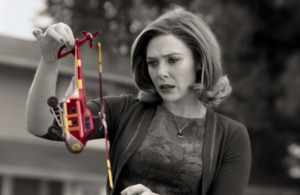
Creating my own Westview
Watching Wanda create the life she always dreamed of while simultaneously regressing to a period that brought her joy hit me harder than I expected. I spent most of my early twenties living through a pandemic. I experienced job loss, isolation, and the constant fear that what little happiness I had left would be taken away. Like Wanda creating The Hex, I decided to create something I had control over in a world that was out of control. On TikTok, I started talking about the movies, TV shows, and franchises that I loved. I wrote and acted in skits where I played all the parts. I built a platform where I could create whatever I wanted, whenever I wanted. I created a space for people like me to discuss and share what they loved away from the never-ending pressures of reality. In a way, I created my own Westview.
A somber but necessary reminder
The ending of WandaVision shows us that while escapism looks like a fun, colorful, and aesthetically pleasing coping mechanism, it stems from the darkness that we must confront at some point. When we watch Wanda tuck in her children for the last time and tell the love of her life goodbye, we watch her say goodbye to not only the life she wanted but the life she will likely never have. It’s a somber but necessary reminder that our losses and traumas are permanent.

We can’t bring loved ones back from the dead, rewrite history, or recast the people in our lives. And while we can close our eyes and try to ignore the not so flowery parts of life, reality will inevitably come crashing in. While dreaming is fun and sometimes necessary, there comes a point when we must wake up and confront why we’re trying to escape in the first place.



